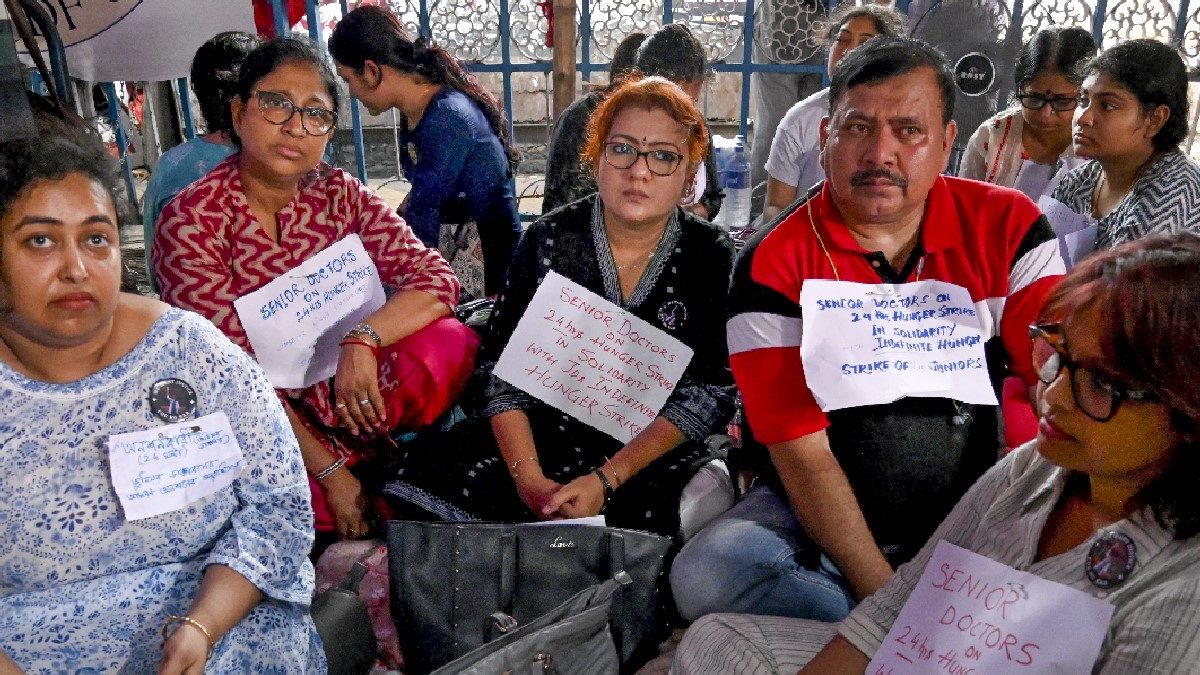The recent mass resignations of senior doctors in West Bengal, seemingly in support of junior doctors protesting against the RG Kar rape-murder case, have sparked controversy and raised legal questions. While the doctors have stated that these resignations are symbolic and meant to express solidarity, the state government has declared them invalid due to their collective nature and lack of adherence to service rules. This article examines the situation, exploring the government’s perspective and the reasons behind the doctors’ actions.
Symbolic Solidarity and Legal Validity
The mass resignations, represented by collectively signed letters, emerged as a way for senior doctors to demonstrate their support for the junior doctors demanding justice and improved workplace security. However, the West Bengal government has insisted that these letters do not hold legal weight. According to the government, individual resignations must be submitted in accordance with established service rules. This means that each resignation letter should be signed personally by the employee, addressed to the specific employer, and submitted individually.
The government’s stance is based on the principle that resignations constitute a serious legal matter involving a contractual relationship between the employer and employee. The collective approach taken by the doctors, while signifying their unity, fails to meet the required legal protocols for a valid resignation.
The Government’s Stance
Alapan Bandyopadhyay, the chief advisor to the West Bengal Chief Minister, has emphasized the importance of individual submissions and addressed the concerns surrounding the generic nature of the collective letters. He has stated that the lack of specific details regarding the individuals signing these letters raises questions about their legal standing. Additionally, the absence of individual submission process for each resignation undermines the formal requirements set forth by the service rules.
The government has maintained that healthcare services have not been disrupted despite the controversy surrounding the resignations. They claim that senior doctors are continuing to fulfill their duties, ensuring the continuity of essential healthcare services during the Durga Puja festivities.
The Doctors’ Perspective
While the government views the mass resignations as a symbolic gesture without legal standing, the doctors involved maintain that their intentions are clear. The resignations, though presented as collective letters, are meant to amplify their voice and highlight their concerns regarding the safety of healthcare professionals and the justice sought for the victim in the RG Kar rape-murder case. They consider it a crucial step in demonstrating their solidarity with the protesting junior doctors who are on a fast-unto-death to demand immediate action.
The Motivation Behind the Action
The doctors’ actions stem from a profound sense of shared responsibility and concern for their colleagues and the healthcare system as a whole. The brutal incident at RG Kar Medical College has shaken the medical community, triggering widespread demands for improved security measures and accountability for those responsible. The mass resignations represent a powerful act of solidarity, aimed at bringing attention to the vulnerability of medical professionals and the need for systemic change.
The collective approach allows for a unified message to be conveyed. The doctors, united in their grief and demand for action, choose to use this method to communicate their shared concerns. They believe that the symbolic nature of their resignations serves as a potent reminder of the consequences of inaction and emphasizes the urgency for concrete measures to protect healthcare workers.
Finding a Middle Ground
The ongoing situation underscores the delicate balance between symbolic gestures and legal obligations. While the doctors’ actions express their collective solidarity and amplify their concerns, the government’s perspective emphasizes the importance of individual accountability and adherence to formal procedures.
It is imperative to find a solution that addresses the concerns of both parties. Dialogue and open communication are crucial to bridge the gap and arrive at a solution that balances the needs of the doctors with the legal requirements and procedural regulations.
Take Away Points
- The mass resignations, though intended as a symbolic gesture, were not recognized as legally valid by the West Bengal government due to the absence of individual submissions.
- The government has emphasized the importance of following service rules and individual accountability in resignation processes.
- The doctors’ action was motivated by solidarity and the need for change, highlighting concerns regarding safety and justice in the healthcare sector.
- The incident highlights the complexities of addressing collective actions and finding a balance between symbolic gestures and legal requirements.
- Dialogue and communication are key to finding a solution that addresses the concerns of both the doctors and the government.




